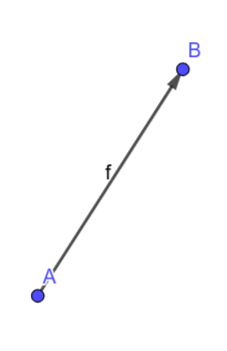Topics: Graph Theory
(definition)
In a graph, the lines that join its vertices are called edges. Each edge has a set of one or two associated vertices, which are called final nodes or terminal vertices_.
The set of edges in a given graph can be empty. An edge that joins the same vertex is called a loop.
Adjacency and Incidency
When two edges share a vertex, we say that they are adjacent.
When a vertex is a final node of an edge , we say that incides on .
Serial Edges
Two edges are serial if they are adjacent and their shared vertex has a degree of 2.
Direction
Edges can be of two types: undirected or directed (also known as arcs). Directed edges have a direction, while undirected edges do not.
An example of an undirected edge is:

An example of a directed edge is:
